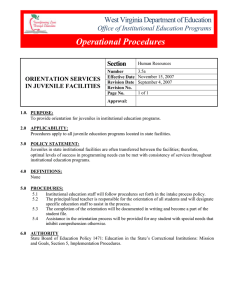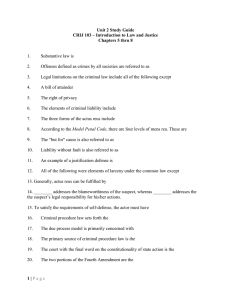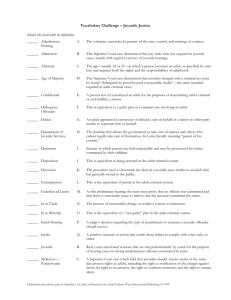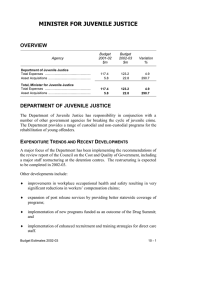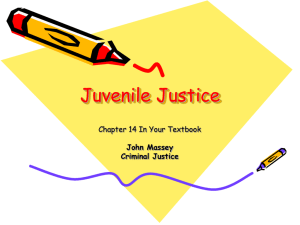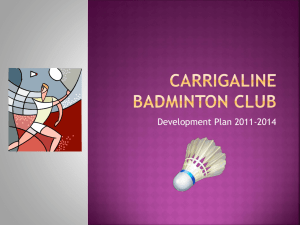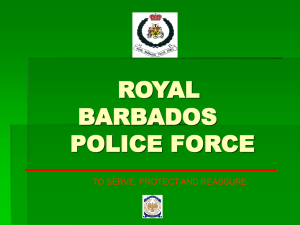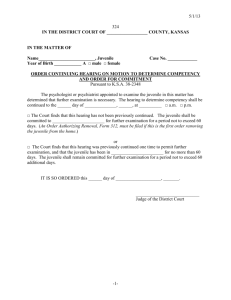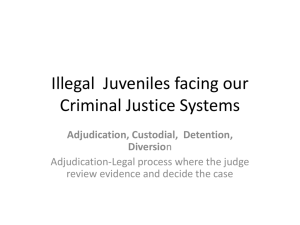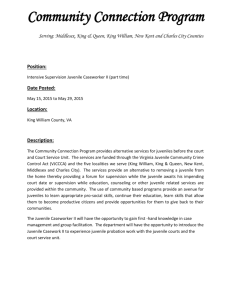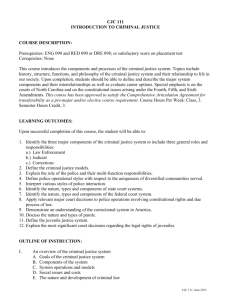CRIMINAL JUSTICE TODAY
advertisement
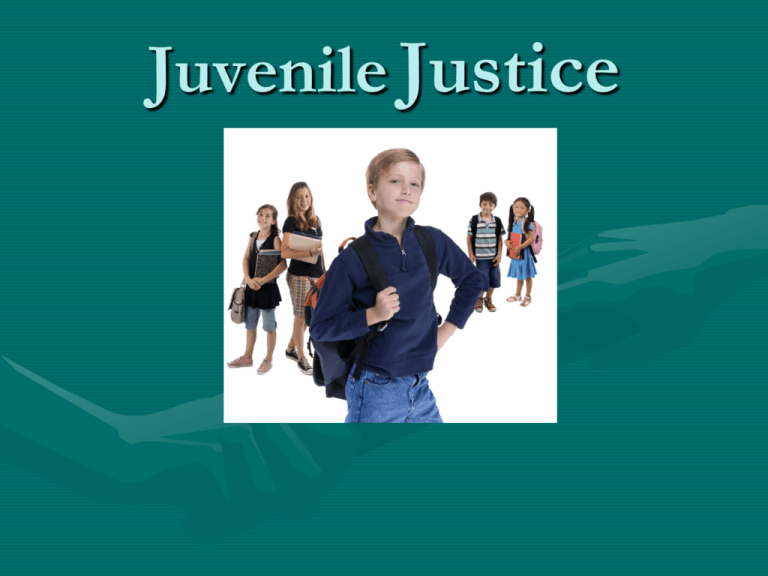
Juvenile Justice Categories in Juvenile Justice • Delinquent children (Calif. W & I 602) – Violate criminal law • Undisciplined children (“Out of Control”) – Beyond control of parents. • Dependent children – Have no guardians • Neglected children – Do not receive proper care (malnutrition) • Abused children – Suffered physical abuse (also includes emotional and sexual) • Status offenders (Calif. W & I 601) – Children that violate laws specifically written for children (truancy, buying cigarettes) Problems Today for Juveniles • What are some of the problems juveniles face today? • Drugs and Alcohol – What is the most widely used drug among H.S. students? – Marijuana • Violence • Gangs – 50% of gang members are between 18-24 • Runaways – Only about 20% have contact with police or social services • Sexual Abuse • Other – Physical, emotional, neglect, medical neglect Legal • Kent v. U.S. (1966) – Need for minimal due process • In re Gault (1967) – Gave juveniles many of the rights that adults have – Notice of charges – Right to counsel – Right to confront and cross examine – Protection from selfincrimination • In re Winship (1970) – Delinquency must be proved “beyond a reasonable doubt” • McKeiver v. Pennsylvania (1971) – Maintained existing practice of no trial by jury, but does not prohibit it • Breed v. Jones (1975) – Restricted conditions for transfers from juvenile to adult courts – Must be made before adjudication • Schall v. Martin (1984) – Upheld preventive detention (non punitive) – Must have • Prior notice • Detention hearing • Statement from judge stating reasons • Illinois v. Montanez (1996) – Let stand a ruling that made voluntary confessions inadmissible if made without the presence of a “concerned adult” Juvenile Court Philosophy • Emphasis on child’s best interest rather than guilt or innocence • Emphasis on “treatment” rather than punishment • Protection from public scrutiny (sealed records) - Labeling Theory • Use of social science (rather than need for punishment) • No long term confinement • Juvenile facilities • Discretionary alternatives The Four Stages of the J.J. System • Intake – Arrest or juvenile petition (complaint filed by teachers, neighbors, etc) – Probation Officer review – Detention hearing, diversion, or dismissal – Preliminary hearing can be held in conjunction with detention hearing – probable cause • Adjudication – Focus on privacy, speed, informality, evidentiary standard, philosophy of the court, no right to trial by jury • Disposition – Decision – confine or not confine • Post adjudicatory review – appeals Class Discussions What problems do juveniles face today? Solutions? How do you feel about parental accountability and the possibility of parents being subject to punishment for the crimes of their children? What should the “disposition” be? • Jerry Owen is a 17 year old HS drop out. He has recently been convicted of two burglaries. His criminal record includes three other crimes: two shoplifting incidents and a theft. • His parents are frustrated with his behavior and admit to having trouble controlling him. • Jerry’s two brothers are well behaved and have no criminal record. Anne Yeerns is 15 years old and was convicted of attempted GTA. This was her first offense. However, she is also a runaway. On two prior occasions, she has run away from her father. The first time, she went back home, after three days; the second time, the police brought her back, after one week; and this time, she claims she was stealing the car to get as far away as possible. Anne’s father did not attend the dispositional hearing. • Patrick Darvy is 12 years old and was recently initiated in to a juvenile gang. • He was caught selling drugs; it was his first offense. • Patrick lives with his mother, who is divorced. Ms. Darvy is very concerned about recent changes in his behavior and would like the court’s help in changing his behavior.
